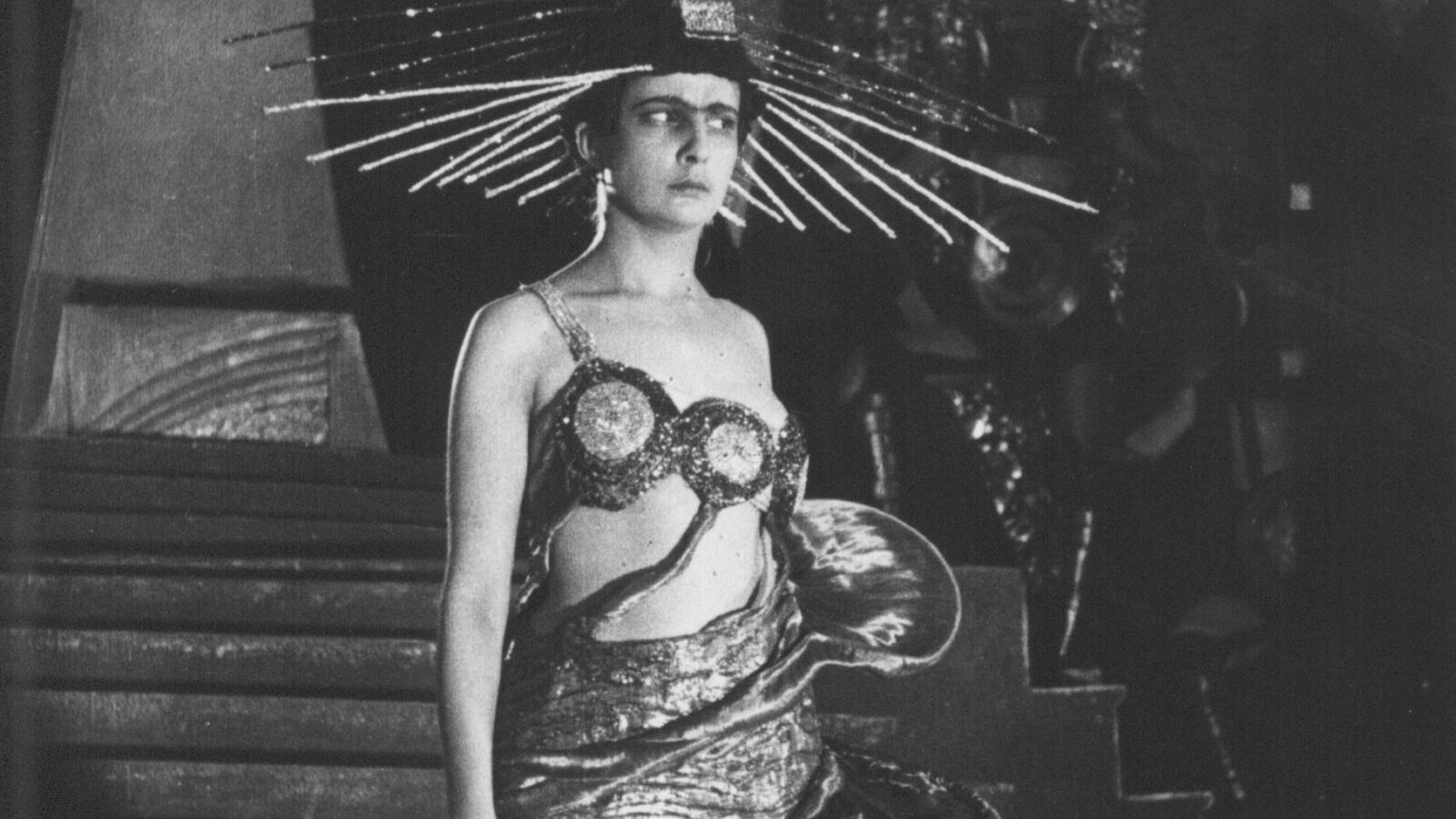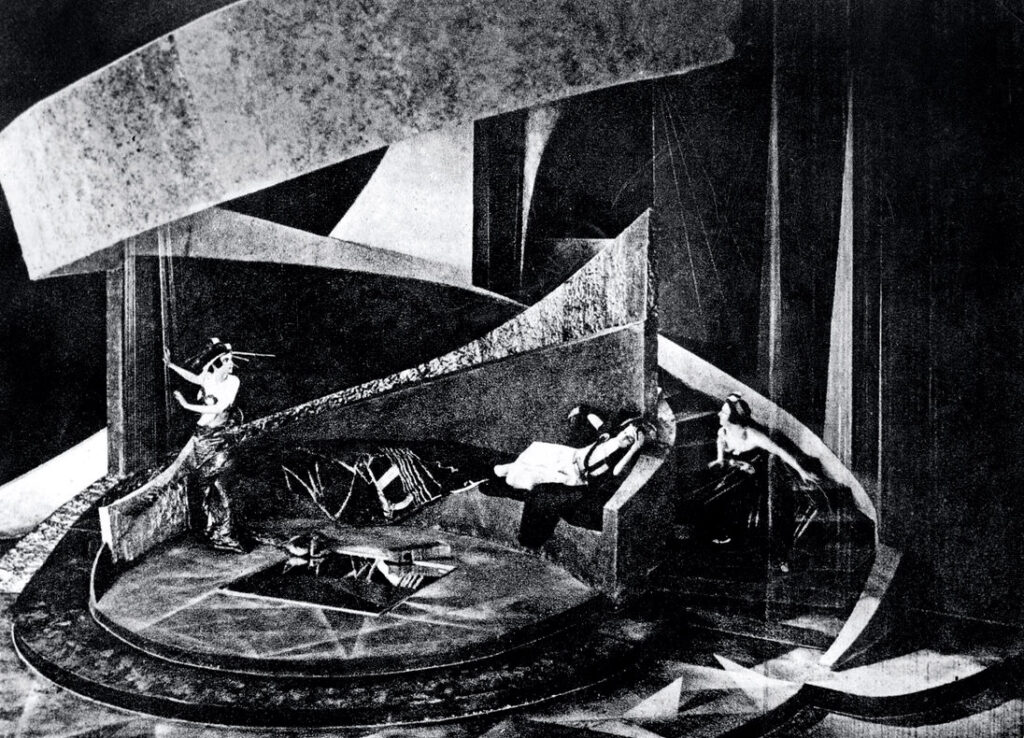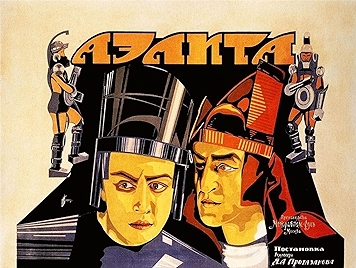Aelita became a popular name for babies born in the Soviet Union the year after this movie, Aelita: Queen of Mars, came out in 1924. Apart from the devotees of the original novel by Alexei Tolstoy, few had heard the name before, or seen anything like this movie adaptation. It was a sensation, a sci-fi movie about a journey to Mars that also addressed the state of the nation as the USSR sought to consolidate the revolution (only seven years old).
There had been sci-fi movies before – 1902’s A Trip to the Moon by George Méliès’s most famously – but this was the first one out of the USSR (please correct me if you know better), and one of the first anywhere to incorporate space travel.
There are two spheres of action, which eventually collide. In one, on Earth, times are hard. People are packed into railway carriages and living in overcrowded dwellings. There are dark mutterings about the good old days, particularly from people – we see in flashback – who were cruelly exploitative in those good old days.
In particular Ehrlich (Pavel Pol), a minor Soviet official working a racket now much as he used to before the revolution, using his position to cosy up to women and also to play the black market. His latest fancy is Natasha (Valentina Kuindzhi), the pretty wife of an engineer, Los (Nikolai Tseretelli).
Los, meanwhile, has received a message from Mars, or he imagines he has, and is busy building a rocket ship to go there to explore. But though he’s absorbed in his work he’s not so absorbed that he hasn’t noticed his wife being courted by Ehrlich. Though Natasha swears there is nothing going on and that she’s the innocent party here, Ehrlich is making Los increasingly furious. But it’s Natasha who will bear the brunt of it.
Up on Mars, meanwhile, Aelita may be the queen but she does not rule. That is done by Tuskub (Konstantin Eggert), who presides over this autocratic slave society (like Russia under the Tsars, nudge nudge) in which Aelita is a bird in a gilded cage. To pass the time she looks through a hi-tech telescope and watches the goings-on on Earth. Maybe she espies an engineer building a rocket ship.
Two realms. One realistic and all too gritty, the other fanciful, a mix of art nouveau meets constructivist set designs of a sort Flash Gordon would borrow just over a decade later.
On Earth when Los goes out into the winter’s cold, he’s got a coat on over his coat – it’s that cold. Up on Mars people wear see-through hats and their outfits are faintly Egyptian. The detail is fascinating. The spaceship, all steel and rivets, takes off convincingly in a ball of flame and steam, director Yakov Protazanov conveying lift-off and the acceleration into the heavens with basic technology.
There’s a bit of something for everybody. Romance and intrigue, adventure, high drama, action, some political propaganda, even a touch of comedy, with the introduction of a character called Kravtsov (Igor Ilyinsky), an amateur sleuth who eventually stows away on board the spaceship.
“Touch my lips with your lips, as you do on Earth,” says Aelita to Los when they eventually meet. He complies. She faints. It’s the film’s undoubted high point, not least because at this point we believe Los might have murdered his wife “as you do on Earth”.
Yuliya Solntseva is a coquettish and charming Aelita but the movie’s star is Kuindzhi, as Los’s benighted wife. It’s a classy and subtle performance, expressive and empathetic, qualities stars in silent movies often don’t have.
Tseretelli is a bit peevish and effete as Los – maybe his wife would be forgiven for going off with the appalling Ehrlich (unsparingly played by Pol) – but in a second role as Spiridonov, an engineer caught up in the black market scam, he’s more convincing (maybe on account of the big beard Spiridonov sports).
I’ve left out a lot of plot details, including a massive spoiler, because this is a plot-driven movie and to explain it is to destroy it. As a film it’s remarkable for its time and though the passing of a century has robbed it of almost all of its wow factor, it remains important, an artefact as much about the Soviet Union’s image of itself as any imagined image of Mars.
Aelita: Queen of Mars – Watch it/buy it at Amazon
I am an Amazon affiliate
© Steve Morrissey 2023


